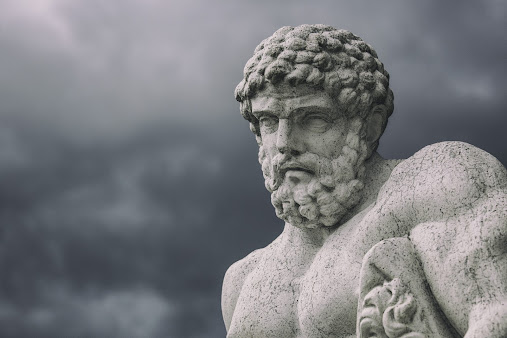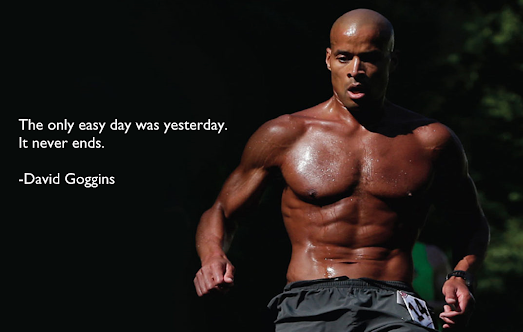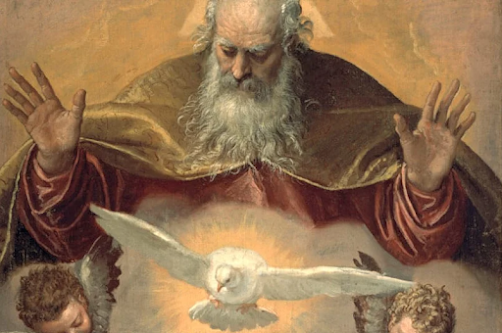No Easy Day - Personal Thoughts on "Hercules Must Choose Between Virtue and Vice" - Xenophon's Memorabilia
Hercules Must Choose
The story begins by expressing the symbolic dilemma that all people face. What is going to be the path that you take as you move into adulthood? Will you undergo the painful transformation into a competent adult or will you choose the "path of Peter Pan," and a delayed childhood of pleasures?
The way that Xenophon expresses it for the young Hercules is a choice between the path of vice and the path of virtue. There Hercules is sitting in silence thinking when two women approach him. One is described as free, modest, pure, and becoming. The other is described as narcissistic, sensuous, with makeup to augment her appearance into perfection. Lady Vice speaks first and offers to be Hercules guide into a life of pleasure, ease, and comfort. "If you befriend me, I will lead you to the most pleasant and easiest road; you will not miss the taste of any delight, and you will live your life without experience of hard things." She then continues to offer him a daily existence that consists solely of enjoying good food and drink, plays and entertainment, and rest and soft bed sheets. She entices him saying that she'll make sure that these pleasures never come to an end, and that her friends call her "Happiness."
Then Lady Virtue comes into the conversation. She rebukes Lady Vice and tries to present Hercules with a different way through life. She claims to know the way the gods have arranged human existence and how Hercules was made. She makes the point that pleasure is not what should be pursued. Rather, the gods made it so that it would only be through hard work and suffering that one achieves any type of honor or lasting good. In so many words, she says that if you want to be good at something, you have to put in the work for it.
"But if you wish the gods to be gracious to you, you must serve the gods; if you want to be cherished by your friends you must do good deeds for your friends; if you desire to be honored by some city, you must benefit the city; if you think you deserve to be admired by all Greece for your virtue you must attempt to be the cause of good for Greece; if you wish the earth to bear you fruit in abundance, you must serve the earth; if you think you must become rich from cattle, you must be attentive to the cattle; if you set out to increase yourself through war and wish to be able to make your friends free and subdue your enemies, you must learn the warlike arts themselves from those who understand them, as well as practice how one must use them. And if you wish to be powerful also in your body, you must accustom your body to serve your judgment, and you must train with labors and sweat.”
Lady Vice interjects that such a path takes a long time and is full of difficulties. She can offer a short and doable path. Lady Virtue will hear nothing of it and proceeds to offer a stinging retort. She says that Vice knows nothing of what is "good." Vice seeks to satiate desires which aren't even in need of satiating. To drink before one is even thirsty, to eat while one is already full, to sleep without being tired, and to not even wait to have sex with women but to have homosexual relations. Vice trades an easy youth for a difficult old age. "What good thing do you have? Or what pleasant thing do you know, not wanting to do anything for the sake of these things? You do not even await the desire for pleasures but rather fill yourself up with everything before desiring it, eating before you are hungry, drinking before you are thirsty. In fact, in order to eat pleasantly you contrive gourmet cooks; in order to drink pleasantly you furnish yourself with costly wines and in summer run around seeking ice; and in order to sleep pleasantly you furnish yourself not only with soft bedclothes but couches and rockers for your couches. For you desire sleep not because of your labor but because you have nothing to do. And you compel [yourself to have] sex before you are in need, contriving all sorts of things and treating (chresthai) men as women."
Finally, Lady Virtue concludes with the argument that to the one who works hard in her service will even enjoy the pleasures of life more because they are enjoyed in response to an actual need and desire. Drink tastes better when you are very thirsty. Sleep is peaceful when the body is tired out. If Hercules follows her then he will be worthy to actually be looked up to by his people. He will live a life that one could be proud of.
"The Only Easy Day Was Yesterday"
First let me say that I have no connection to the military. When I hear, though, the mindset from those who talk about the doctrine of Special Operations in the military, I can't help but thinking of the clear parallel to Christian doctrine and to virtue theory ethics. Part of the SEAL ethos is that "the only easy day was yesterday." In other words, there are no easy days where you aren't trying to grow through willingly putting yourself through suffering. Every day is difficult, and every day is about growth. Those who make it through BUD/S to become a SEAL endure some of the worst and most painful military training. Likewise, the missions they are tasked with are the most dangerous and most difficult, as they are the "tip of the spear." How can something involve incredible suffering and yet still be considered one of the most meaningful things someone can do with their life? How can it be their best memories?
The answer is the same as that which is present in this story of Hercules. Authentic happiness requires suffering. This seems so counter intuitive. How could the best life on earth require pain, suffering, failure, and self denial? That is what Lady Virtue seems to suggest. Her argument is that we actually don't want a life of base pleasures. There is no meaning connected with these pleasures. They feel good in the moment but provide no lasting satisfaction. Thus they must be repeated and repeated in varied forms becoming something like a type of gradual numbing of oneself to reality. She argues that it is more pleasing and meaningful to live a life of virtue, self-denial, honor, and helping others. These will be something we can look back on from our death bed and be proud of. And a denial of one's base pleasures is required in all of these. It could be seen as something akin to the denial of the body in order to please the soul.
This is where there's also a direct connection to Christianity. The Materialist worldview believes that humans are just a body, just an animal, and so therefore like an animal we just need to meet our bodily desires. But the Christian believes that there is a higher part of our existence, an immaterial soul which will survive the death of the body. It is fulfilling the desires of the soul that will bring about our greatest happiness. The difficulty in this is that often those deeper desires of the soul like justice, perseverance, generosity, forgiveness, self-sacrifice, courage, prudence, meekness, wisdom, etc all require a denial of our bodily desires in many immediate moments in order to achieve a higher end in the future. Thus, there is always a perennial battle going on in trying to live human life to its fullness, not being reduced to an image of a base animal.
God as Perfect Father
Connected to this point is the disposition that those who are in charge of forming others in their care should take towards them. Should a parent shower every possible good thing upon their child that they possibly can? In giving a child too many material goods, does it not also rob them of the good of learning to struggle, to fail, and to succeed? Aren't these intangible goods more important than receiving a gift for which they did not work for? If being a parent involves forming the child's character through suffering, how much more can we say of our relationship to God. I know many atheists who say that if God exists why doesn't he remove all suffering. Most recently I saw the English actor Stephen Fry make this claim on social media. Why are there still children who are hungry? Why is there cancer? Why are there natural disasters if God is good. Well what is God's intention? Is it to shower us with unending pleasures? Wouldn't that rob us of the good of suffering, striving, failing, and succeeding? Wouldn't that rob us of the character and virtue which was built in the face of evil or horrible circumstances? Like Lady Virtue pointed out, those who suffer first will be the only one's who can truly enjoy pleasure in its proper place.
Likewise, only in suffering are we going to be able to appreciate Heaven for what it is. When we get to Heaven there is no more opportunity to suffer, to sacrifice oneself for the good of another, to endure pain, to look evil in the face and to choose courage over cowardice. If God didn't at least give us a temporary time of suffering, that would truly be the criminal parent ... A good parent doesn't want to make their child dependent and needy, but to enable them to become independent and generous.







Comments
Post a Comment